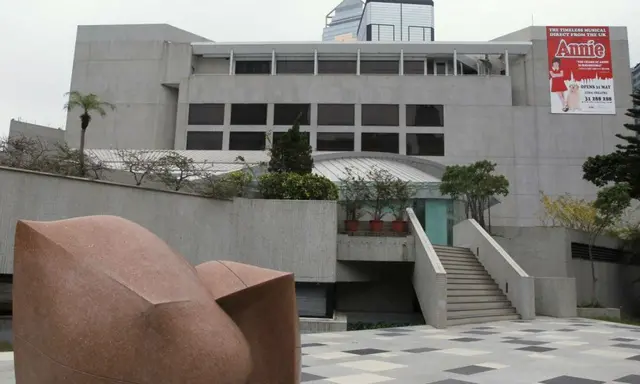Twelve per cent of students at the Academy for Performing Arts have suffered sexual harassment by teaching staff at the school and 18 per cent have witnessed other classmates being sexually harassed by professors, a survey conducted by the students’ union concluded.
The poll also showed that the vast majority of students were not aware of the mechanisms in place to report such cases.
According to the results seen by the South China Morning Post, 131 students responded to the questionnaire. Of those, 69 per cent were female and 31 per cent were male.
As of October 31, 2015, there were 643 students in total enrolled for the academy’s undergraduate degree programmes, and 142 students for its sub-degree programmes, according to the Audit Commission report released this year. These figures do not include those who attend the academy’s junior programmes.
The Hong Kong Academy for Performing Arts Students’ Union launched a survey about sexual harassment at the school, following the Sunday Morning Post’s report in April on a court case involving the academy, a current professor and a former professor of the school.
The Hong Kong Academy for Performing Arts, which is a publicly funded institution, along with Ceri Sherlock, chairman of its school of drama, paid HK$1 million to the former head of the acting school, Peter Jordan, whose contract was not extended in 2013.
He had sued the academy and Sherlock last year under the victimisation provisions of the sexual discrimination ordinance, which provides protection to both victims and advocates of victims. In the case settled out of the court, Jordan claimed he was victimised after reporting students’ complaints to the management.
The case has raised questions over the academy’s transparency and the effectiveness of the procedures in place to protect victims and advocates. Lawmakers and other political figures have called the government to look into the matter.
In the survey, conducted online in May, precisely 100 per cent of students said they have not used the reporting system for sexual harassment by teaching staff, and 94 per cent said they did not know about such mechanisms.
Aside from experiencing sexual harassment or witnessing it, some 57 per cent of the students also said they had heard that a classmate around them had been previously harassed by a teacher.
The results show that, among those who were sexually harassed, at least 13.7 per cent decided to tolerate it in silence, whereas 25 per cent sought help from mentors or other teaching staff, and 26 per cent chose to talk to other classmates.
For those who witnessed sexual harassment or who have been sexually harassed, 28 per cent said that they were worried that if they reported a teacher, it would affect their grades or cause unfair judgment. Another 17 per cent said they were afraid that it could have an impact on their acting auditions.
Some 23 per cent of students said there were occasions in which they were unable to differentiate whether the actions of a teacher were based on academic needs or on something else.
The students’ union concluded that the current reporting mechanism is not transparent and it is “unable to protect the students”. It also noted that students are afraid of reporting teaching staff.
“The ironic thing is that all the respondents have not even used this reporting mechanism, which reflects that this mechanism had never been able to achieve its function,” the union said in a report read by the Post.
An academy spokesman said previously that it “strictly prohibits any form of discriminatory harassment and there are established internal policy and mechanisms for such allegations and they have been strictly followed”.
Unlike the case for most universities in Hong Kong, the academy’s sexual harassment and victimisation policies were not available online.
Ryan Lo, president of the students’ union, has called for the academy to release the details of the investigation conducted on the case reported by Jordan.
“Students are very concerned about this matter,” he told the Post.
“In [Asian] culture, people tend to be more embarrassed when talking about sexual harassment,” Lo said. “Also, as auditions and marking in an art school could be quite subjective, students are afraid that they will get fewer chances to participate in a production if they make complaints about their teachers,” he noted.
Lo asked the academy to set up a fair and transparent mechanism for reporting sexual harassment as soon as possible. “The academy needs to review its policy about sexual harassment … And procedures of handling complaints from students should be made public,” he urged.
(SOUTH CHINA MORNING POST)
 简体中文
简体中文

